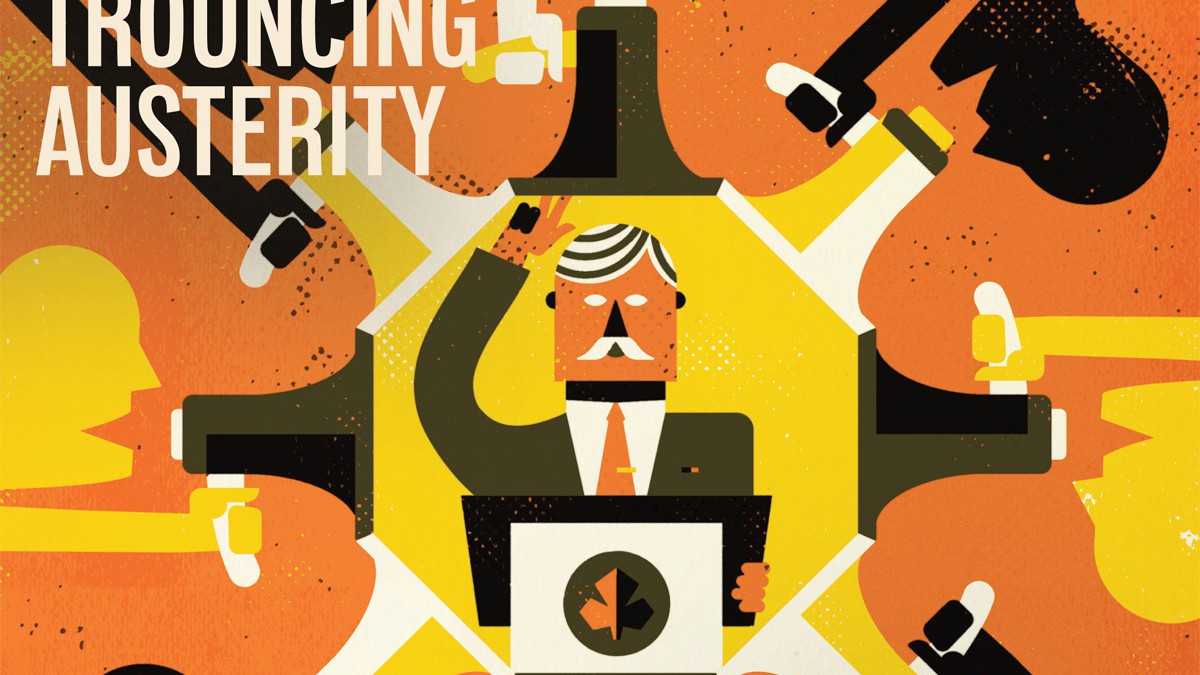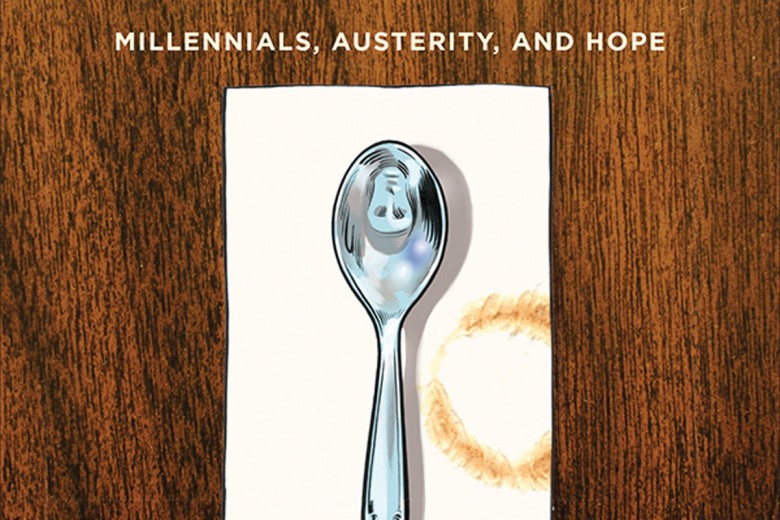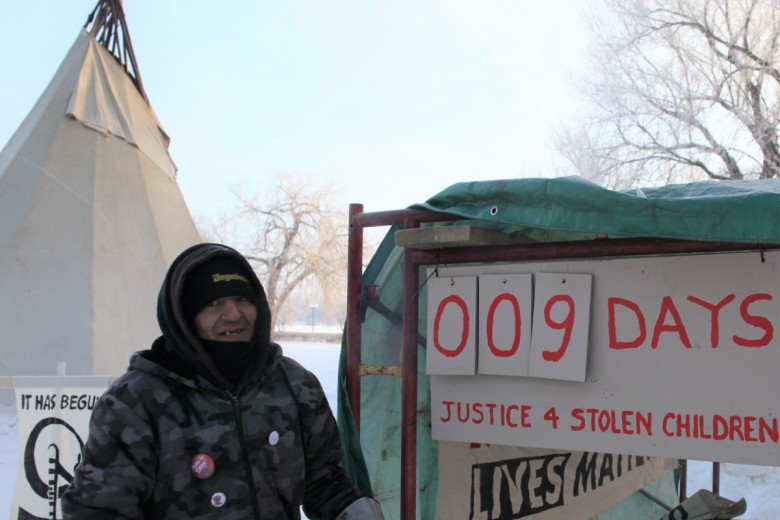It was a difficult summer for many people in Saskatchewan, Briarpatch’s home province.
In the spring, the provincial government, led by right-wing Premier Brad Wall and his caucus of austerity hacks, dropped a budget so callous it sent many people reeling. In an effort to ameliorate a $685-million deficit, the government cut income assistance, education, housing supports, the entire provincial bus system, libraries (though this was reversed after concerted pushback), and hearing aid funding, among other vital public services. The Saskatchewan Party is now considering selling off low-income housing units, and the Ministry of Social Services has announced it will accelerate the recovery of overpayments to recipients of income assistance by reducing their benefits by an additional $10 per month until they “pay back” the province.
The cuts go further. As Laura Stewart outlines in the first article of the Magazines Canada fellowship (“Exposing The Thin Roots of Prairie Protection,” p. 14), the government slashed its long-standing pastures program, which had served as a key source of protection for biodiverse grasslands. As Stewart impresses upon us, the stakes are significant: “This is not just any land. … Prairie can help resist climate change itself. Deep-rooted grassland plants store carbon underground, safe from the wildfires that release carbon from forests.” The demise of this program will have implications for how Saskatchewan contends with climate change in the near future.
People in Saskatchewan are facing an attack on the most important aspects of our collective life and well-being. These are literally life-threatening cuts. But should this budget have caught us off guard?
Alex Himelfarb, a former civil servant and current chair of the advisory board at the Canadian Centre for Policy Alternatives’ Ontario office, notes the role of “strategic obfuscation” in austerity more broadly: “In Canada, austerity has been implemented in slow motion and this incremental, barely visible austerity has been seductive. It’s harder to rally opposition. More so because very little information has been provided on the extent and implications of the cuts… it is almost impossible to develop a complete picture of where we are headed.”
In this issue, Rob Caballero elaborates on how austerity gets rolled out (“A Renewed Movement Against Austerity”): “Advisers to austerity governments even recommend setting the stage for privatizing public services by getting rid of a few, less consequential ones at first, just to be able to have examples to point to and say ‘see, it’s not so bad.’ But this softening of public opinion is really about creating the ground for more serious privatizations and divestment.”
A look back at the last 35 years of Saskatchewan politics – or at the Briarpatch archives – will show that these cuts have been a long time coming, beginning with Grant Devine’s Progressive Conservative government and expanded from 1991 to 2007 by the NDP, which pursued Crown privatization, education cuts, freezes to social assistance, and significant cuts to social programs.
For some on the left, replacing a conservative government with a social democratic one represents the best hope for putting an end to crushing austerity: a government guided by principles of social justice will right the wrongs and maybe even materially improve people’s lives. But for others, this is magical thinking: even the most progressive parties, once in power, will fold to capital. In “Traded for Gold,” Ashley Renders explores how the pressures of foreign investment and post-bailout austerity led Syriza to approve a Canadian gold mining operation in northern Greece, despite firm local opposition.
This isn’t to say that electoral politics can’t get social movements closer to their goals. Among other things, progressive governments can provide a framework for legislating movement wins. Aalya Ahmad’s article, “Working for the Weekend,” makes this point well: rather than relying on “‘job creators’ masquerading as benefactors” to improve working conditions, labour wins like a shorter workweek must be enshrined in legislation.
But history has shown that social movements compromise their militancy when they put their trust solely in a purportedly progressive government. Anti-capitalist, anti-colonial, and anti-imperialist demands for improved labour conditions, adequate and stable housing, police accountability, harm reduction, environmental protection, and decolonization should be coherent and relentless, regardless of the party in power.
The day this issue went to print, Brad Wall resigned from politics after ten years as premier of Saskatchewan. We’re not out of the woods by any means, but we do face an opportunity to take control of political framing and continue building capacity for what Caballero refers to as dual power: “letting the NDP, or other progressive/quasi-socialist parties, lose or gain power based on their willingness to implement the movement’s demands.”
Even with Wall out of the game, austerity logic can stick around no matter who is in power. Only watchful, sustained, and strategic organizing from the ground up can prevent it – in Saskatchewan, and in other parts of Canada – and move us toward the systemic, transformative change that we urgently need. I hope this issue of Briarpatch provides lucid and uncompromising arguments for the importance of holding electoral politics to account to social movements.







